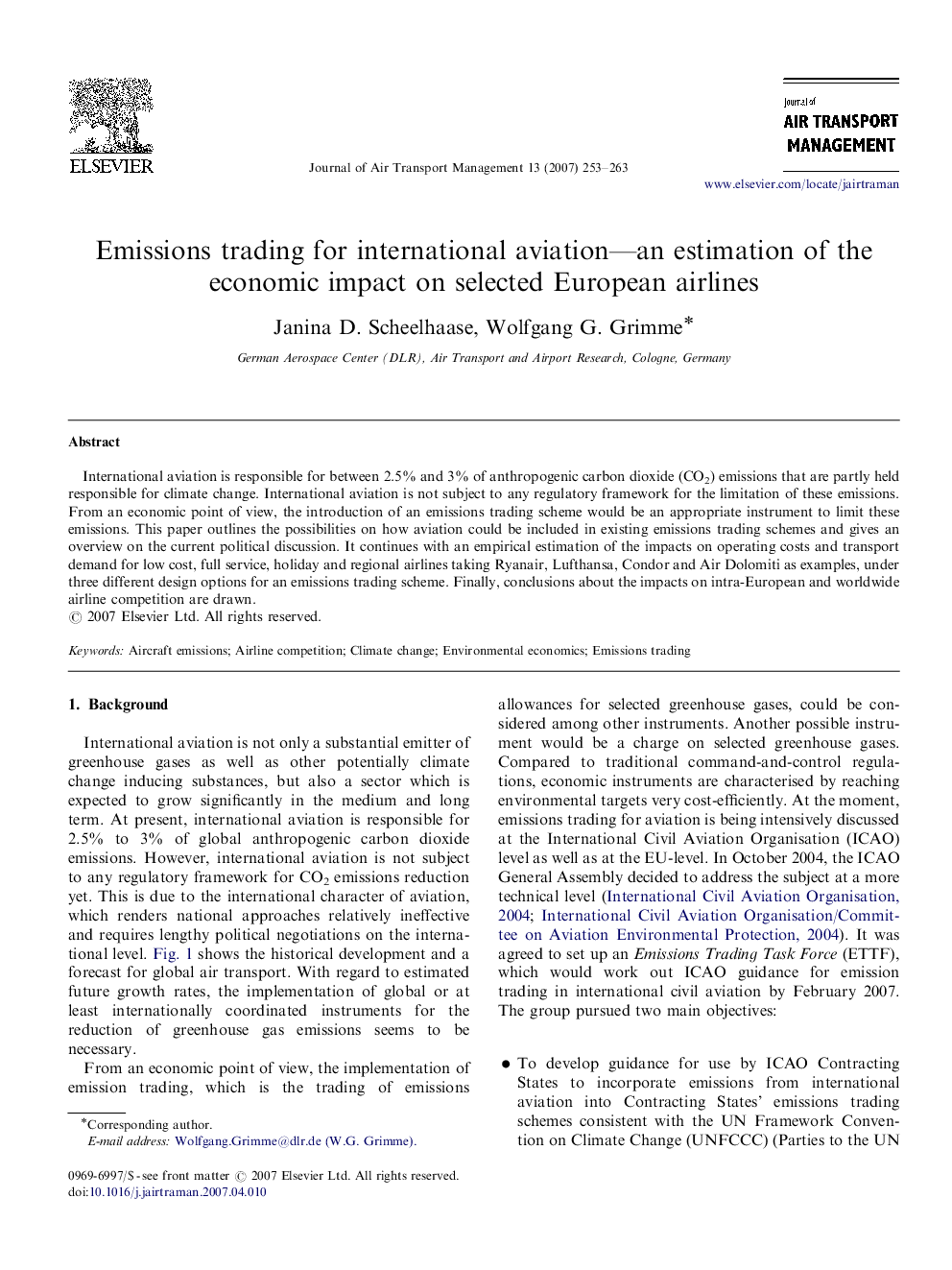| Article ID | Journal | Published Year | Pages | File Type |
|---|---|---|---|---|
| 1031451 | Journal of Air Transport Management | 2007 | 11 Pages |
International aviation is responsible for between 2.5% and 3% of anthropogenic carbon dioxide (CO2) emissions that are partly held responsible for climate change. International aviation is not subject to any regulatory framework for the limitation of these emissions. From an economic point of view, the introduction of an emissions trading scheme would be an appropriate instrument to limit these emissions. This paper outlines the possibilities on how aviation could be included in existing emissions trading schemes and gives an overview on the current political discussion. It continues with an empirical estimation of the impacts on operating costs and transport demand for low cost, full service, holiday and regional airlines taking Ryanair, Lufthansa, Condor and Air Dolomiti as examples, under three different design options for an emissions trading scheme. Finally, conclusions about the impacts on intra-European and worldwide airline competition are drawn.
